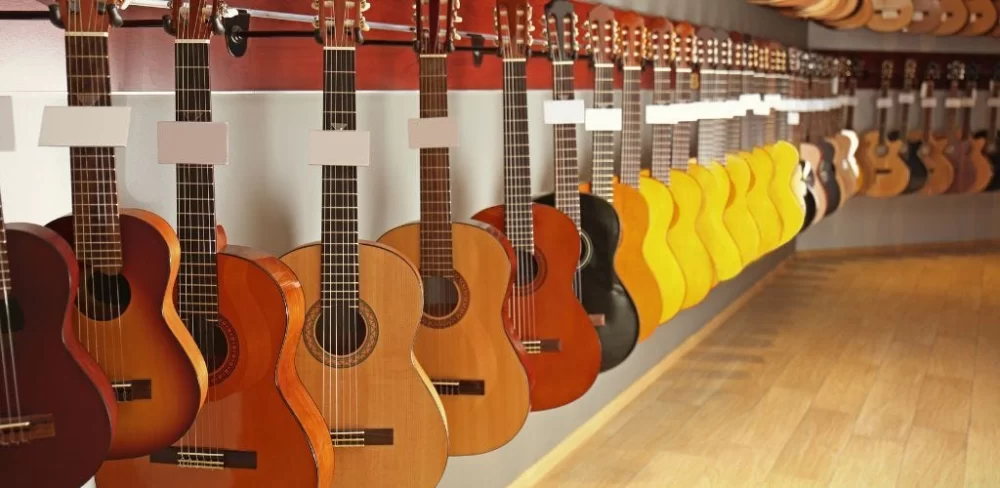
Choosing the Perfect Classical Guitar for Your Musical Journey
When I first started playing the classical guitar, I remember feeling overwhelmed by the sheer number of options available. It seemed like every guitar in the store was either too expensive, too heavy, or just didn’t feel right. If you’re reading this, I bet you’re in the same boat, trying to figure out how to buy the best classical guitar that suits your needs and preferences. Don't worry! By the end of this guide, you'll have a much clearer idea of how to select the right instrument for your musical journey.
Why Choose a Classical Guitar?
Before diving into the specifics of buying a classical guitar, let’s talk about why you might want one in the first place. Classical guitars are renowned for their rich, warm sound, and they are ideal for playing traditional classical music, flamenco, and even folk tunes. Unlike steel-string acoustic guitars, classical guitars have nylon strings, which give them a unique tonal quality. They also typically have a wider neck and are played with fingers rather than a pick, offering a different kind of playing experience.
As I reflect on my own experience, the decision to switch from a steel-string guitar to a classical one opened up new musical horizons. The soft and smooth tone of the nylon strings was perfect for the classical pieces I had always wanted to play. However, the transition wasn’t always easy, and it took time to adjust to the new style and feel of the guitar.
Understanding the Key Features of Classical Guitars
When I first started looking at classical guitars, it was easy to get lost in all the jargon. So, let’s break down the key features you’ll need to understand to make an informed choice:
- Size and Shape: Classical guitars come in a variety of sizes, from full-size to smaller models (like 3/4 and 1/2 sizes). The size of the guitar you choose will largely depend on your body size and comfort. As a beginner, a smaller guitar might be easier to handle, but if you’re an adult, you might prefer a full-size guitar for better sound and resonance.
- Wood Type: The wood used in the construction of the guitar greatly influences its tone and resonance. The top of the guitar is typically made from spruce or cedar, with spruce producing a brighter tone and cedar offering a warmer, softer sound. The back and sides are often made from rosewood or mahogany, both of which affect the richness and depth of the sound.
- Neck Width: Classical guitars generally have a wider neck compared to other types of guitars. This makes them ideal for fingerstyle playing, but it can be a challenge for beginners who are not used to such a wide neck. It's important to test the neck width and ensure it feels comfortable in your hand.
- Strings: Most classical guitars use nylon strings, though some high-end models may feature composite strings or even gut strings. Nylon strings are gentler on the fingers, making them a great choice for beginners, but they do have a unique feel compared to the steel strings of acoustic guitars.
- Action and Playability: The “action” refers to the height of the strings from the fretboard. A low action is generally easier to play but may result in buzzing if too low. On the other hand, a high action can make playing more challenging but gives the guitar a clearer tone.
How to Test a Classical Guitar Before Buying
One of the most crucial steps in buying a classical guitar is testing it before making a purchase. I recommend going to a reputable guitar store and playing a few different models to get a feel for them. Here’s what I do when testing a classical guitar:
- Comfort: First and foremost, the guitar should feel comfortable to hold and play. Check the neck width and the overall weight of the instrument. You don’t want something too heavy or too light, as it will affect your playing experience.
- Sound: Listen carefully to the sound the guitar produces. Strum gently and listen for clarity and warmth in the tone. Play different notes and chords to see how well the guitar projects sound. Classical guitars are known for their resonance, so be sure to choose one that gives off a pleasant, balanced sound.
- Action: Pay attention to the action of the guitar. Press down on the strings and check if the action feels too high or too low. A guitar with a comfortable action will make it easier to play, especially for beginners.
- Neck and Frets: Examine the neck and frets for any signs of damage. Make sure the neck is straight and the frets are properly seated. If the guitar is poorly constructed, it could affect your ability to play in tune.
What Are the Best Brands of Classical Guitars?
As I continued my search for the best classical guitar, I learned that certain brands are known for their consistent quality and craftsmanship. Here are a few brands that I recommend based on my own experiences and reviews from other musicians:
- Yamaha: Yamaha is a popular and trusted brand for beginners and intermediate players. Their guitars are affordable yet provide great sound and playability. Models like the Yamaha C40 are well-regarded for their quality.
- Cordoba: Known for their beautiful craftsmanship, Cordoba guitars are a favorite among classical guitarists. They offer a wide range of models suitable for all levels, from the budget-friendly C5 to the more luxurious C12.
- Alhambra: Alhambra is another respected Spanish brand known for producing high-quality classical guitars. These guitars are particularly well-regarded for their warm tones and durable construction.
- La Patrie: For players seeking a Canadian-made instrument, La Patrie offers beautifully constructed guitars with an emphasis on playability and tone. They are perfect for players who want a solid, reliable guitar.
Where to Buy Your Classical Guitar
Once you’ve narrowed down the features and the brand you prefer, it’s time to consider where to buy your classical guitar. There are plenty of online stores, but I always recommend trying the guitar in person first. Visiting a local music store gives you the opportunity to test out the instrument, ask questions, and even get advice from knowledgeable staff. If you’re in the USA, there are several reliable stores like Guitar Center and Sweetwater where you can find quality classical guitars.
If you prefer to shop online, websites like Amazon, Guitar Center, and even specialty stores like Beat Trigger offer a wide selection of classical guitars with detailed product descriptions, reviews, and the option to return the instrument if it’s not the right fit. Just be sure to check the return policy before making a purchase.
My Personal Experience and Tips
When I finally bought my classical guitar, it felt like a major milestone in my musical journey. I had tried several guitars before settling on the one that felt just right. My best advice to you is to be patient. Don’t rush the decision-making process, and take the time to explore different models, sizes, and features. A good guitar will be an investment in your music for years to come, so it’s worth putting in the effort to find the perfect one.
Remember that there’s no one-size-fits-all when it comes to choosing a classical guitar. What works for me may not be ideal for you, and that’s okay! The most important thing is to find an instrument that feels comfortable, sounds great, and inspires you to play.








